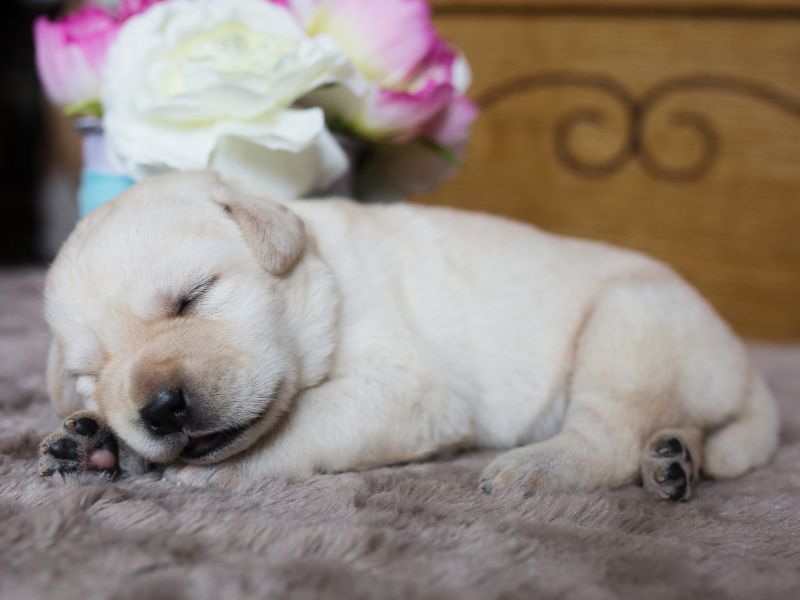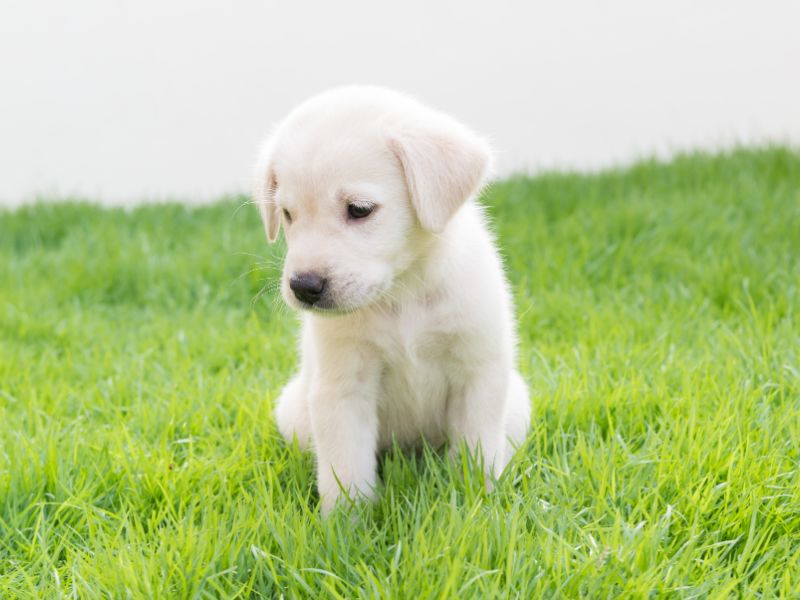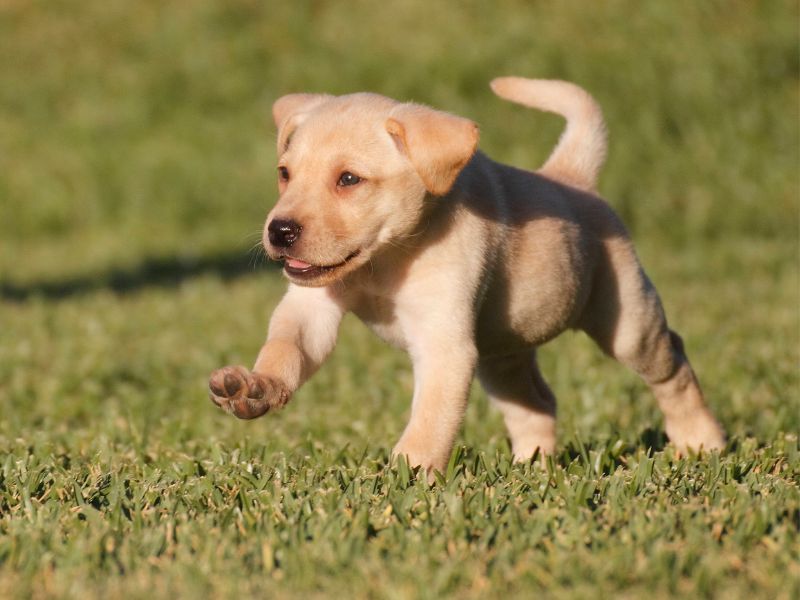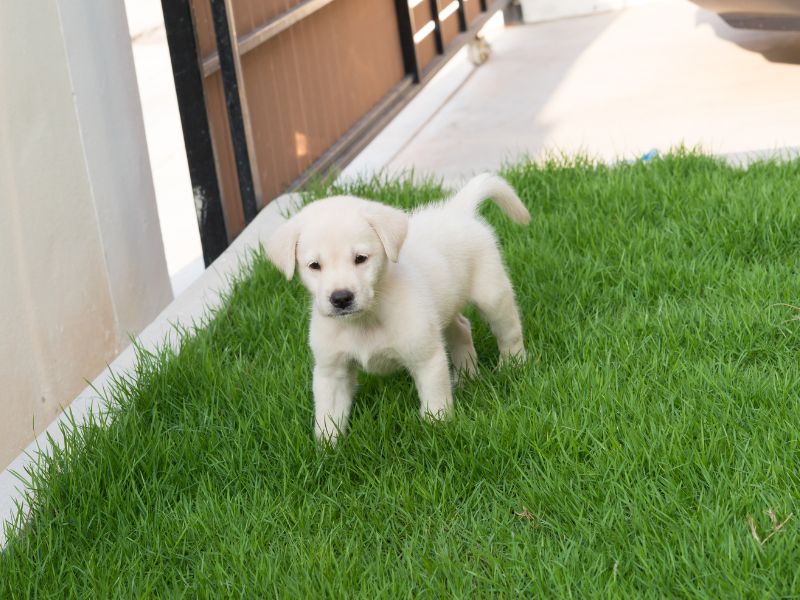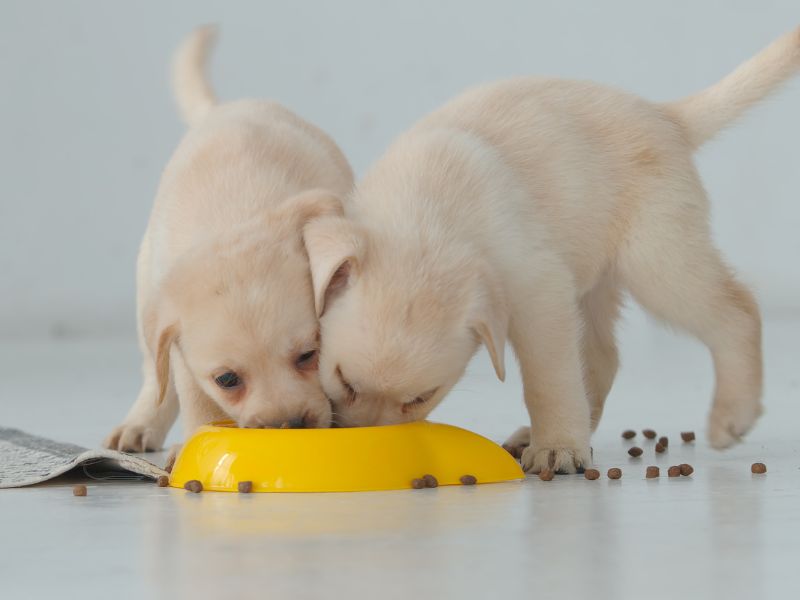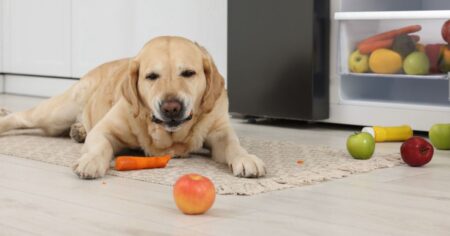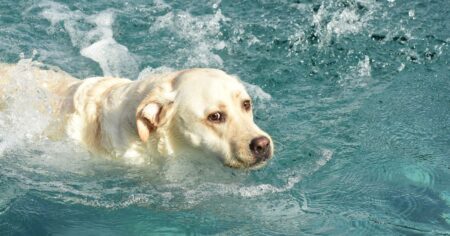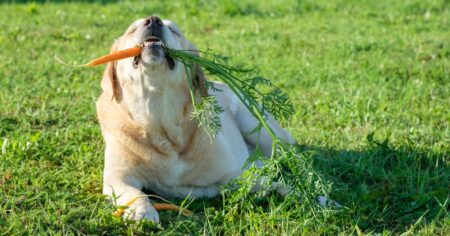When it comes to buying a new puppy, it’s important to take your time and do your research to ensure that you’re getting a healthy and happy pet. If you’re considering bringing a Labrador retriever into your home, there are a few key steps you can take to make sure you’re getting a high-quality dog that will be a great fit for your family.
The first step in buying a healthy Labrador puppy is to decide what type of Labrador you want. Labradors can be divided into two different strains: those bred for the show ring or as pets, and those bred for work as gundogs. Each type has different characteristics and temperaments, so it’s important to choose the type that best fits your lifestyle and needs. Once you’ve decided on the type of Labrador you want, you can begin the process of finding a reputable breeder and selecting a puppy that is healthy and well-cared for.
Is Your 8 Week Old Puppy Driving You Crazy?
Bringing home an 8-week-old puppy can be an exciting and joyful experience. However, it can also be overwhelming and exhausting, especially if your puppy is driving you crazy. It is common for puppies to exhibit behaviors such as biting, growling, and zooming around the house. These behaviors can be a result of overexcitement, teething, or a lack of training.
To deal with overexcitement and zoomies, it is recommended to provide your puppy with plenty of exercise and playtime. Take your puppy for walks, play fetch, and engage in other physical activities to help them burn off their excess energy. Additionally, providing your puppy with chew toys and puzzles can help keep them occupied and mentally stimulated.
If your puppy is biting excessively, it is important to redirect their attention to appropriate chew toys and discourage them from biting your hands or feet. Consistency is key when it comes to training your puppy not to bite or growl. Using positive reinforcement techniques such as treats and praise can also be effective in encouraging good behavior.
It is also important to establish a routine for your puppy, including regular feeding times, bathroom breaks, and training sessions. This can help them feel more secure and prevent them from becoming overly anxious or stressed. With patience, consistency, and proper training, your 8-week-old puppy can become a well-behaved and beloved member of your family.
Diet and Nutrition – Feeding an 8 Week Old Puppy
Feeding an 8-week old Labrador puppy is an important aspect of ensuring its health and growth. Puppies at this age are usually weaned from their mother’s milk and are starting to eat solid food. Here are some tips to consider when feeding an 8-week old Labrador puppy:
- Choose a high-quality puppy food: Look for a puppy food that is specifically formulated for Labrador puppies and is high in protein and fat. Avoid feeding adult dog food to puppies as it may not provide the necessary nutrients for their growth.
- Feed small, frequent meals: Puppies have small stomachs and cannot eat a lot of food at once. It is recommended to feed them small, frequent meals throughout the day, usually three to four times a day.
- Measure the food: It is important to measure the amount of food you are feeding your puppy to avoid overfeeding. Follow the feeding guidelines on the puppy food package or consult with a veterinarian to determine the appropriate amount.
- Provide fresh water: Make sure your puppy has access to fresh water at all times. Change the water frequently and clean the bowl daily.
- Avoid table scraps: Feeding table scraps to puppies can lead to obesity and other health problems. Stick to feeding them their puppy food.
- Introduce new foods slowly: If you want to introduce new foods to your puppy’s diet, do it slowly and in small amounts. This will help prevent digestive upset.
- Supplement with vitamins and minerals: Talk to your veterinarian about supplementing your puppy’s diet with vitamins and minerals, especially if they are not getting enough from their puppy food.
- Monitor your puppy’s weight: Keep track of your puppy’s weight and adjust their food intake accordingly. Overfeeding can lead to obesity, while underfeeding can stunt their growth.
By following these tips, you can ensure that your Labrador puppy is getting the proper nutrition it needs for a healthy and happy life.
First Night with Puppy
Bringing home a new puppy can be an exciting and overwhelming experience. The first night with your new Labrador puppy is an important time to establish routines and boundaries. Here are some options for your first night with an 8-week-old puppy.
First Night Options for an 8 Week Old Puppy
- Option 1: The Puppy Safe Sleeping Area
- Option 2: A Puppy Crate
- Option 3: A Box Next to Your Bed
#1 The Puppy Safe Sleeping Area
Creating a safe sleeping area for your puppy is important. This can be a small room or area that is puppy-proofed and free of hazards. Make sure that the area is clean, comfortable, and warm. Place a soft bed or blanket for your puppy to sleep on. Provide some toys and a water bowl nearby.
#2 A Puppy Crate
Using a crate can help your puppy feel safe and secure. The crate should be large enough for your puppy to stand up, turn around, and lie down comfortably. Place a soft bed or blanket inside the crate. Leave the crate door open so that your puppy can explore it on their own. You can also cover the crate with a blanket to create a cozy den-like environment.
#3 A Box Next to Your Bed
If you prefer to have your puppy close to you during the first night, you can place a box next to your bed. Line the box with a soft bed or blanket for your puppy to sleep on. Place some toys and a water bowl nearby. This option allows you to monitor your puppy during the night and comfort them if they become anxious or scared.
Remember to spend some time playing with your puppy before bedtime to tire them out. Take them out for a potty break before settling them into their sleeping area. With the right preparation and care, your puppy’s first night in their new home can be a comfortable and positive experience.
Which Option is Best?
When it comes to choosing a Labrador puppy, there are two distinct types: show type and working type. Show type Labradors are bred primarily for their looks and are often larger and heavier than working type Labradors. Working type Labradors, on the other hand, are bred for their ability to work as gundogs and are often leaner and more athletic.
Deciding which type of Labrador is best for you depends on your lifestyle and what you are looking for in a dog. If you are looking for a companion to snuggle up with on the couch, a show type Labrador may be the better option. However, if you are an active person who enjoys outdoor activities such as hiking and hunting, a working type Labrador may be a better fit.
It is important to note that regardless of which type of Labrador you choose, it is crucial to select a reputable breeder who prioritizes the health and well-being of their dogs. A healthy puppy should have clear eyes, a glossy coat, and be energetic and playful. The whole litter should look healthy and well-fed.
In addition to selecting a healthy puppy, it is also important to ensure that the breeder you choose has taken the necessary steps to prevent genetic health issues in their breeding program. This can include genetic testing and screening for common health issues such as hip dysplasia and eye problems.
Ultimately, the best option for buying a healthy Labrador puppy is to do your research and choose a reputable breeder who prioritizes the health and well-being of their dogs. By taking the time to choose the right breeder and the right type of Labrador for your lifestyle, you can ensure that you are bringing home a happy and healthy companion for years to come.
8 Week Old Puppy at Night – Sleeping and Crying
One of the most challenging aspects of owning a 8 week old Labrador puppy is dealing with their sleeping patterns. Puppies at this age sleep for around 18 to 20 hours a day, but they also wake up frequently during the night. This can be frustrating for new owners, but it’s important to remember that it’s normal behavior for a young puppy.
To help your puppy sleep through the night, it’s important to establish a routine. Try to feed your puppy at the same time every day, and take them outside to go potty before bedtime. This will help them associate bedtime with sleep and reduce the likelihood of them waking up during the night.
If your puppy does wake up during the night, it’s important to resist the urge to comfort them. This can reinforce the behavior and make it more difficult to break in the future. Instead, try to ignore the crying and wait for them to settle down. If they continue crying, take them outside to go potty and then put them back in their crate.
Speaking of crates, they can be an invaluable tool for helping your puppy sleep through the night. A crate provides a safe and secure space for your puppy to sleep, and can help reduce the likelihood of accidents during the night. As a general rule, a puppy can stay in the crate at night for the number of hours equal to their age in months plus one. For example, an 8-week-old puppy can stay in the crate for up to 3 hours at a time.
It’s important to remember that crying at night is a normal behavior for a young puppy, but it can also be a sign of distress. If your puppy continues to cry despite your best efforts, it’s a good idea to take them to the vet to rule out any underlying health issues. With patience and persistence, however, most puppies will eventually learn to sleep through the night and become well-adjusted, healthy adult dogs.
How Much Do Puppies Sleep?
When it comes to puppies, sleep is essential to their healthy growth and development. According to the American Kennel Club, puppies usually sleep from 18 to 20 hours a day. However, it’s important to note that this sleep is not continuous and is broken up into several short naps throughout the day and night.
Newborn puppies sleep for a whopping 18-20 hours a day. However, it’s not a very peaceful sleep as puppies under two weeks old have an activated sleep pattern, which means they continue to move and vocalize a lot, even when they’re napping! From about 14 days old, puppies enter the transitional phase where their sleep patterns start to resemble those of adult dogs.
As puppies grow, they will start to sleep for longer periods at night and stay awake for longer periods during the day. Labrador Retriever puppies will generally sleep through the night by about 4 months old, but it can range from 8 or 9 weeks old all the way through 6 months old. Some puppies may also go through a sleep regression when going through a growth spurt or teething.
It’s important to provide your puppy with a comfortable and safe sleeping area. A crate or a designated puppy bed can be a great option. Make sure the area is quiet and free from distractions. Additionally, it’s important to establish a consistent bedtime routine to help your puppy learn when it’s time to sleep.
Potty Training Your 8 Week Old Puppy
Potty training is an essential part of raising a healthy and happy puppy. It requires patience, consistency, and a positive attitude. The first step is to establish a routine for your puppy. Take them outside to the same spot every time they need to go potty. Use a leash and collar to keep them close and under control.
It’s important to keep a close eye on your puppy and take them outside frequently, especially after meals, naps, and playtime. Puppies have small bladders and need to go potty often. Be sure to praise and reward your puppy every time they go potty outside. This will reinforce good behavior and help them learn faster.
Crate training is also an effective way to potty train your puppy. Dogs are den animals and naturally avoid going potty in their sleeping area. Use a crate that is just big enough for your puppy to stand up, turn around, and lie down comfortably. Take them outside immediately after letting them out of the crate.
Remember, accidents will happen. If your puppy has an accident inside, clean it up immediately with an enzymatic cleaner to eliminate the odor. Do not punish your puppy for accidents. This will only confuse and stress them out. Instead, stay positive and continue with the routine and training. With time and patience, your puppy will learn to go potty outside and become a well-trained companion.
Get Pippa’s Training Tips!
Pippa Mattinson is a renowned dog trainer and author who has written extensively on Labrador puppies and their training. Her tips and tricks can be invaluable to new puppy owners looking to train their furry friend.
One of Pippa’s most popular training guides is her house training guide, which covers every aspect of house training and includes instructions for puppy parents that have to go out to work. Her crate training guide is also highly recommended for new puppy owners.
In addition to her written guides, Pippa has also set up regular tips by email which answer many common questions about training your Labrador puppy. These tips are a great resource for new puppy owners looking for guidance and support.
Overall, Pippa’s training tips and guides are a great way to ensure that your Labrador puppy gets the best possible start in life. By following her advice, you can help your puppy become a well-behaved and happy member of your family.
Crate Training Your 8 Week Old Puppy
Crate training is an essential part of raising a healthy and well-behaved Labrador puppy. It provides a safe and comfortable space for your puppy to rest, relax, and feel secure. With proper crate training, your puppy will learn to view the crate as a positive and enjoyable place to be.
To get started with crate training, you will need a crate that is the appropriate size for your puppy. The crate should be large enough for your puppy to stand up, turn around, and lie down comfortably. You will also need a soft bed, toys, and treats to make the crate a comfortable and enjoyable place for your puppy.
The first step in crate training is to introduce your puppy to the crate. Place the crate in a quiet and comfortable area of your home and leave the door open. Encourage your puppy to explore the crate by placing treats and toys inside. Once your puppy is comfortable going in and out of the crate, you can start closing the door for short periods of time while you are in the room.
Gradually increase the amount of time your puppy spends in the crate while you are at home, and start leaving your puppy in the crate for short periods of time while you are away. Always make sure your puppy has access to water and a comfortable bed while in the crate.
Remember, crate training should always be a positive experience for your puppy. Never use the crate as a form of punishment, and never leave your puppy in the crate for extended periods of time. With patience and consistency, your Labrador puppy will learn to love their crate and view it as their own personal space.
Leaving Your Puppy Home Alone
Leaving a puppy home alone can be a daunting task for any new dog owner. It is important to remember that puppies have different needs than adult dogs and require more attention and care. According to the American Kennel Club, puppies under ten weeks old should not be left alone for more than an hour at a time, while puppies between ten and twelve weeks old can be left alone for up to two hours at a time.
As puppies get older, they can be left alone for longer periods of time, but it is important to remember that they still need plenty of attention and care. It is recommended to gradually increase the amount of time the puppy is left alone to help them adjust.
When leaving a puppy alone, it is important to provide them with a safe and comfortable space. This can be a crate or a designated area of the house that is puppy-proofed. It is also important to provide them with plenty of toys and activities to keep them occupied.
Overall, leaving a puppy home alone can be a challenge, but with patience and preparation, it can be done successfully. It is important to remember to gradually increase the amount of time the puppy is left alone, provide them with a safe and comfortable space, and plenty of toys and activities to keep them occupied.
Puppies Biting
Labrador puppies have a natural tendency to bite and chew on things. This behavior is part of their teething process and is a way for them to explore their environment. However, it can be painful for their owners and can cause damage to their belongings.
To prevent this behavior, it is important to provide your puppy with appropriate chew toys and bones. These should be made of durable materials and should not be small enough to be swallowed. When your puppy starts to bite or chew on something they shouldn’t, redirect their attention to one of their toys.
It is also important to teach your puppy bite inhibition. This means teaching them how to control the force of their bite. If your puppy bites too hard during playtime, yelp or say “ouch” in a high-pitched voice to let them know they have hurt you. This will teach them to be more gentle.
Consistency is key when it comes to training your puppy not to bite. Everyone in the household should use the same methods to prevent biting and redirect the puppy’s attention to appropriate chew toys. With patience and persistence, your Labrador puppy will learn appropriate chewing behavior.
Destructive Puppy Behavior
It is not uncommon for puppies to exhibit destructive behavior, especially when left alone. Common behaviors include chewing on furniture, shoes, and other household items, digging holes in the yard, and excessive barking or whining.
One possible cause of destructive behavior is separation anxiety. Puppies may become anxious and stressed when left alone for extended periods of time, leading to destructive behavior as a way to cope with their anxiety.
Another possible cause is boredom. Puppies are active animals and require plenty of stimulation and exercise to keep them happy and healthy. If a puppy is not getting enough exercise or mental stimulation, they may resort to destructive behavior as a way to entertain themselves.
To prevent destructive behavior, it is important to provide puppies with plenty of exercise and mental stimulation. This can include regular walks, playtime, and training sessions. Additionally, providing puppies with plenty of toys and chew items can help redirect their destructive behavior onto appropriate items.
If a puppy continues to exhibit destructive behavior despite these efforts, it may be necessary to seek the help of a professional trainer or behaviorist. They can provide additional guidance and support to help puppies overcome their destructive tendencies.
Puppies Running Off
When it comes to buying a Labrador puppy, one of the potential problems that many new puppy buyers are not aware of is the puppies running off. This is a common issue that can occur when the puppy is not properly trained or socialized.
To prevent puppies from running off, it is important to train them from a young age. Puppy training classes can be a great way to socialize your puppy and teach them basic commands such as sit, stay, come, and heel. Additionally, it is important to provide your puppy with plenty of exercise and mental stimulation to keep them happy and healthy.
Another way to prevent puppies from running off is to make sure your yard is secure. This means ensuring that all gates are locked and that there are no gaps or holes in the fence that the puppy can escape through. It is also important to supervise your puppy when they are outside to make sure they do not wander off.
By following these steps, new puppy buyers can help prevent their Labrador puppy from running off and ensure that they have a happy and healthy life with their new furry friend.
What We Expect from an 8 Week Old Puppy
When buying a healthy Labrador puppy, it is important to know what to expect from an 8 week old puppy. Here are a few things that one can expect from a healthy 8 week old Labrador puppy.
Cuddles
At 8 weeks old, Labrador puppies are still very young and love to cuddle. They are very affectionate and love to be held and played with. They will often curl up in your lap and fall asleep while you pet them.
A Fun Friend for Children
Labrador puppies are great companions for children. They are very playful and enjoy spending time with kids. They love to run around and play fetch, which makes them a great choice for families with young children.
Success and Quick Results
Labrador puppies are very intelligent and quick learners. With proper training, they can learn new tricks and commands very quickly. They are eager to please and love to learn, which makes training them a fun and rewarding experience.
In summary, an 8 week old Labrador puppy is a cuddly, fun-loving, and intelligent companion that makes a great addition to any family.
8 Week Old Puppy – The Reality
Bringing home a new 8-week old Labrador puppy is an exciting time. However, it’s important to be prepared for the reality of owning a young puppy. Puppies are cute, cuddly, and playful, but they also require a lot of attention and care. Here are some things to keep in mind when bringing home an 8-week old puppy:
- Potty Training: Potty training can be a challenge, and accidents are bound to happen. It’s important to be patient and consistent with training. Take your puppy outside frequently, reward them when they go potty outside, and clean up any accidents inside promptly.
- Chewing and Teething: Puppies love to chew, and they will chew on anything they can get their teeth on. It’s important to provide your puppy with appropriate chew toys to satisfy their chewing needs and prevent them from chewing on furniture or other household items.
- Socialization: Socialization is crucial for puppies to learn how to interact with other dogs and people. It’s important to expose your puppy to different environments, people, and animals in a positive and safe way.
- Vet Visits: Regular vet check-ups are essential for your puppy’s health and well-being. Schedule a vet appointment within the first few days of bringing your Labrador puppy home. Follow your vet’s recommendations for vaccinations and preventive care.
- Training: Basic obedience training is important for puppies to learn basic commands such as sit, stay, and come. It’s important to start training early and be consistent with training.
- Exercise: Puppies have a lot of energy and require daily exercise to stay healthy and happy. Take your puppy for walks, play fetch, and provide plenty of opportunities for play and exercise.
- Nutrition: Proper nutrition is important for your puppy’s growth and development. Choose a high-quality puppy food that is appropriate for your puppy’s age and size.
- Sleep: Puppies need a lot of sleep to support their growth and development. Provide a comfortable and safe sleeping area for your puppy, and make sure they get plenty of rest.
Overall, owning an 8-week old Labrador puppy can be a rewarding experience, but it requires a lot of time, effort, and patience. With proper care and training, your puppy will grow into a happy and healthy adult dog.
8 Week Old Puppy Care
When bringing home an 8-week old Labrador puppy, it is important to provide them with proper care to ensure their health and well-being. Here are some tips to help you take care of your new furry friend:
- Feeding: At this age, puppies need to be fed four times a day with small portions of puppy food. Make sure to choose high-quality food that is appropriate for their age and breed. Always provide fresh water in a clean bowl.
- Training: Start training your puppy early on basic commands such as “sit,” “stay,” and “come.” Use positive reinforcement techniques such as treats and praise to encourage good behavior.
- Exercise: Puppies need plenty of exercise to burn off their energy and stimulate their minds. Take them for short walks and play with them in a secure and safe environment.
- Socialization: Introduce your puppy to new people, animals, and environments to help them develop social skills. This will help prevent behavioral issues in the future.
- Grooming: Regular grooming is important to keep your puppy clean and healthy. Brush their coat regularly and trim their nails as needed. It is also recommended to take them to a professional groomer for a bath and haircut every few months.
- Healthcare: Schedule regular check-ups with a veterinarian to ensure your puppy is healthy and up-to-date on vaccinations. Watch for signs of illness such as diarrhea, vomiting, or loss of appetite and seek medical attention if necessary.
By following these tips, you can ensure that your 8-week old Labrador puppy receives the care they need to grow into a healthy and happy adult dog.



